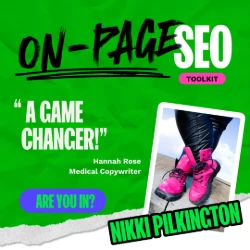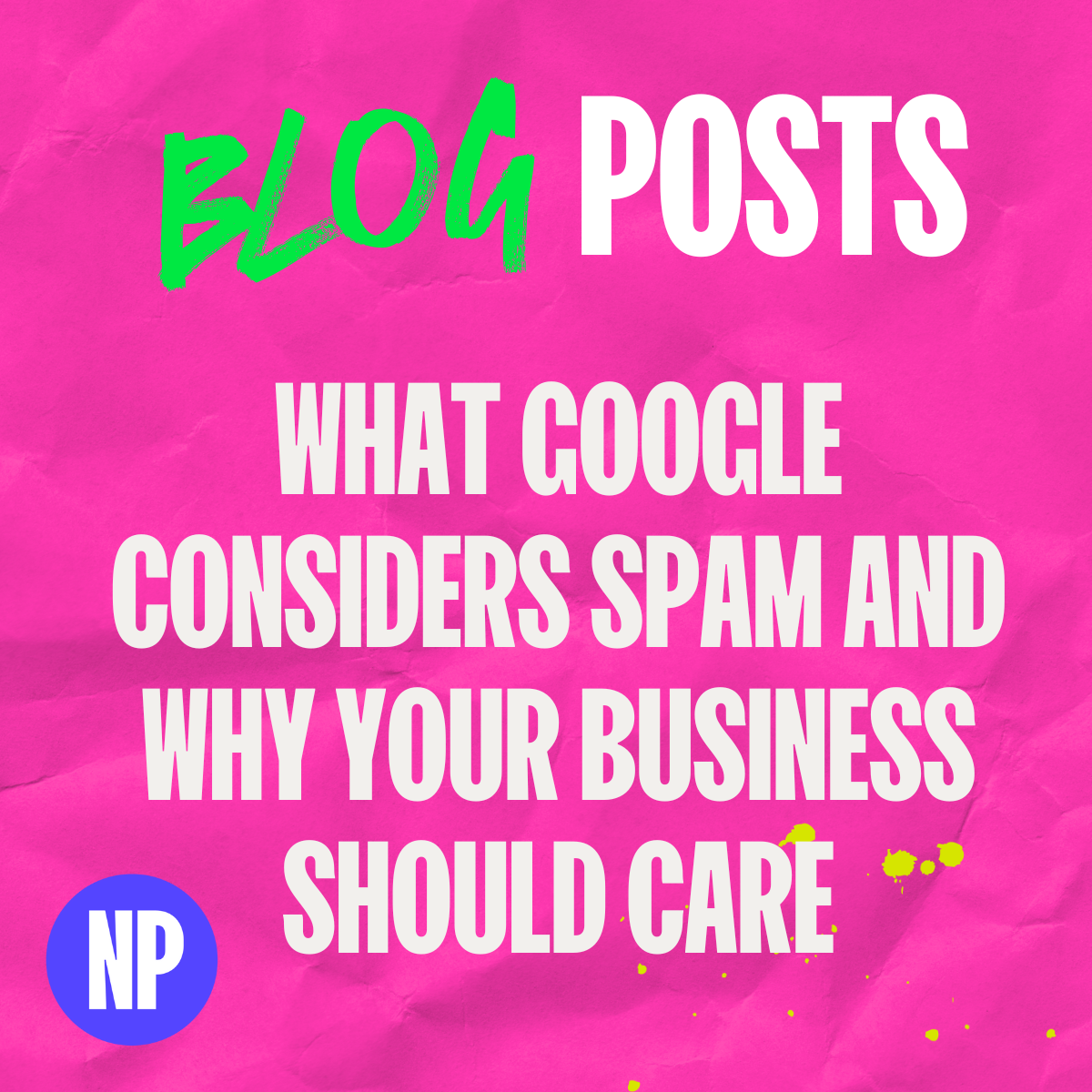Google’s rolling out a Spam Update at the moment, and if you’ve been following dodgy “AI SEO hacks” from LinkedIn “gooroos”, you might want to pay attention. This isn’t about boring technical stuff – it’s about protecting your business from practices that could ruin your rankings, even if you didn’t mean to do anything wrong.
Google’s spam policies target anything designed to deceive users or manipulate search rankings. The key thing to understand is they’re specifically going after manipulation, not legitimate businesses following best practice SEO and doing things properly.
I’d advise reading the document at the link above, but here I’ve summarised several main areas that small businesses need to understand to avoid accidentally crossing the line.

10 easy lessons, perfect on-page SEO. £200
Content manipulation practices
The biggest spam violations happen when people try to trick search engines instead of helping users. I see businesses getting caught out by these practices all the time:
- Dumping hundreds of AI articles onto websites without any human oversight
- Stuffing keywords into content until it reads like a robot wrote it
- Copying content from other sites and hoping nobody notices
- Hiding text or links that users can’t see but search engines can

Local business spam tactics
Local businesses face their own specific spam risks, particularly around reviews and business information. Google’s especially aggressive about catching:
- Fake reviews, whether they’re written by humans or generated by AI
- Stuffing keywords into business names like “Best Northampton Copywriter Nikki’s Amazing Services”
- Publishing false information about your business location or services

Dodgy link building schemes
Link manipulation is still a spam concern, and the techniques keep evolving. The practices that’ll get you in trouble include:
- Buying or selling links purely for ranking purposes
- Using automated tools to spam comments across forums and blogs
- Submitting to hundreds of low-quality directories that nobody uses

Why this August update should worry some people
Google called this a “normal spam update,” but given how aggressive they’ve been about AI content farms and site reputation abuse in recent times, it’s probably targeting more sophisticated manipulation attempts. If you’ve been experimenting with those “revolutionary AI SEO techniques” that promise overnight success, the next few weeks might be interesting.
The real problem isn’t just getting caught – spam penalties affect your entire domain. When Google penalises your site, it doesn’t just hurt the dodgy content. Your whole website loses authority, making it harder to rank for anything, even stuff you used to dominate.

What small businesses should worry about
Most small business websites won’t be affected by spam updates if they’re following sensible practices, but there are specific areas where well-meaning business owners can accidentally wander into dangerous territory.
The good news is that most legitimate business practices align perfectly with what Google wants to see. You’re almost certainly fine if you’re doing these things:
- Writing content that helps your customers solve problems
- Sharing genuine information about your business and services
- Earning reviews by providing excellent service
- Building relationships with other businesses in your industry
Where businesses accidentally mess up
However, there are specific practices that can catch out business owners who think they’re being clever about SEO:
- Using AI tools to create dozens of location-based pages like “Copywriting Birmingham,” “Copywriting Leicester,” and so on
- Buying fake reviews or working with services that promise to “boost your review count”
- Hiring SEO “experts” who guarantee quick results through automated techniques
The “best” content trap
This “advice” catches out a lot of well-meaning businesses – constantly creating blog posts about being “the best” at everything. I once had a client who insisted on churning out content like “We’re the Best Copywriters in Northampton,” “Why We’re the Best Marketing Agency,” “The Best Content Writers You’ll Find.”
This falls into Google’s keyword stuffing guidelines – specifically creating content that serves search engines rather than users. The problem isn’t claiming to be good at what you do. It’s when you’re creating multiple posts that are essentially keyword variations without genuine value.
Google’s pattern recognition spots when businesses create multiple similar pages targeting slight keyword variations. If these “best” posts don’t offer genuine insights beyond self-promotion, you’re heading into spam territory.
The safe approach is one well-written “Why Choose Us” page instead of multiple “best” posts. Let customers say you’re the best in reviews, rather than repeatedly claiming it yourself. Companies that focus on demonstrating expertise through case studies and results will eventually outrank those who just keep shouting about being brilliant.

Don’t panic, but don’t be stupid either
Recovery from spam penalties takes years, not months. You’re not starting from scratch – you’re starting from a penalised position, which is infinitely worse.
If you’re seeing ranking fluctuations over the next few weeks, don’t panic and start changing everything. Spam updates can cause temporary volatility even for legitimate sites. Don’t frantically adjust your content strategy based on daily ranking movements.
Keep doing what you should have been doing all along – creating helpful content that serves your potential customers, not trying to game algorithms with whatever shiny new technique someone’s shouting about on social media.
The businesses that survive Google’s ongoing crackdown are the ones focusing on genuine value rather than trying to find shortcuts. It’s not exciting, but it works.
Worried about the August Spam Update? Let’s chat.





